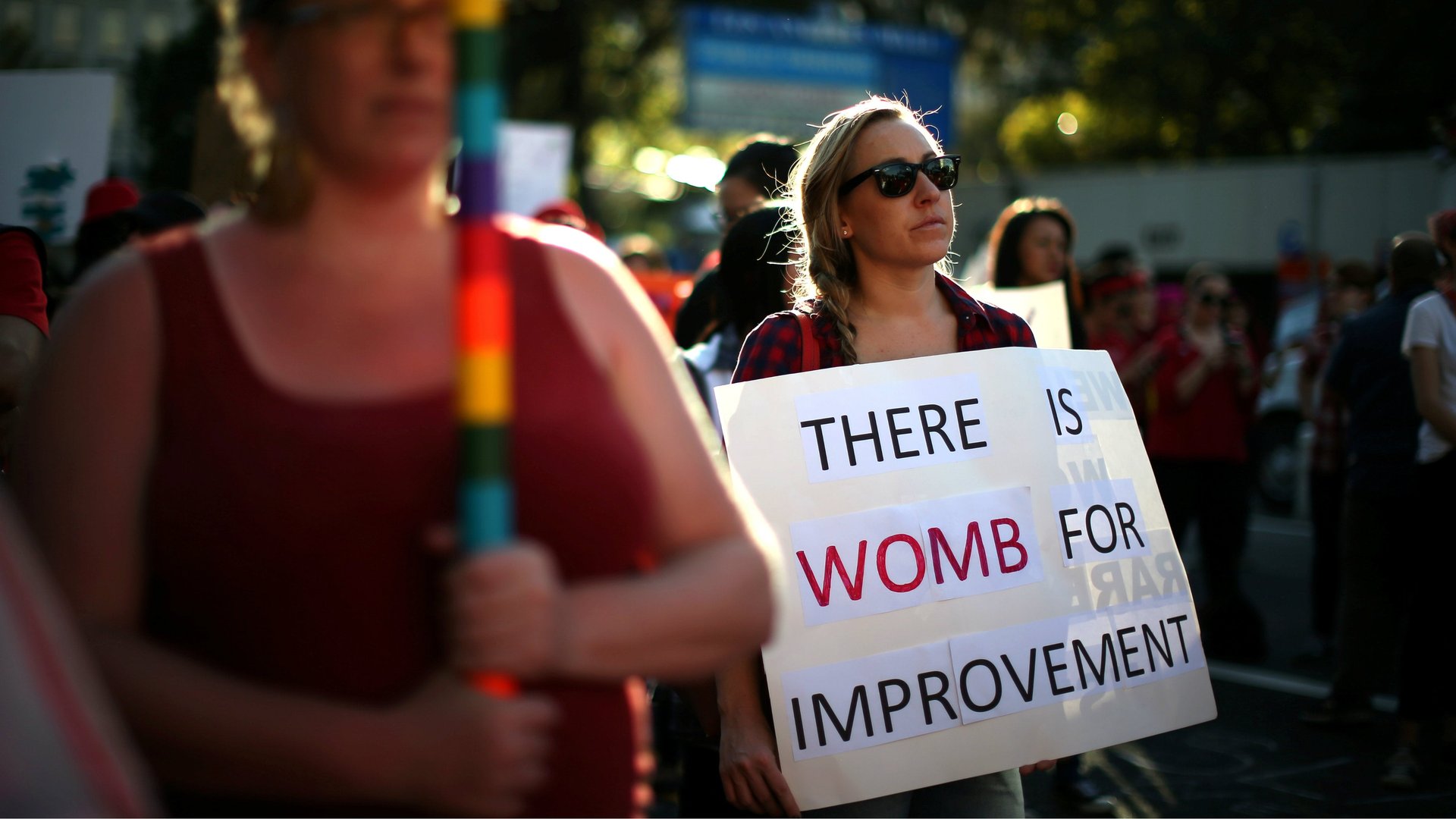These are the places where more women than men think a woman’s place is in the home
Women represent half the world’s population, but remain underrepresented in the work place. In 2016, men’s labor force participation rate was 76% compared to women at 50%.


Women represent half the world’s population, but remain underrepresented in the work place. In 2016, men’s labor force participation rate was 76% compared to women at 50%.
Yet worldwide, a solid majority of women and men say women should have paid jobs, in a large poll conducted by Gallup and the International Labour Organization (ILO). That includes those who say women should have paid jobs and care for family and home simultaneously, versus just solely staying home.
Surprisingly, in North America, South Asia and Western Europe, the report found that women are more often the ones who think a woman’s place is in the home:
In the other regions surveyed, more men than women said women should stay home.
Western Europe smokes everyone when it comes to views of women in the workplace. Only 13% of men preferring a 1950s-style Mad Men set up where the woman stays home, significantly less than the 21% of men in the US who share that view. Strong family-oriented policies in Europe such as long parental leave and government-supported child care no doubt play a role in supporting working women. In France, for example, women can take their babies to a state-sponsored crèche, or high-quality day care center, from about six weeks of age; the kids can be put in school from age two-and-a-half.
The research was based on interviews conducted in 2016 with nearly 149,000 adults in 142 countries and territories about their attitudes about women and the world of work.
To gauge attitudes, women were asked: “Would you PREFER to work at a paid job, or stay at home and take care of your family and the housework, or would you prefer to do both?” Men were asked: “ Would you PREFER that the women in your family work at paid jobs, or that they stay at home and take care of your family and the housework, or would you prefer that they do both?”
The report made clear that staying home is work: “Caregiving and household chores certainly are work, albeit unpaid work,” and it noted that the 19th International Conference of Labour Statisticians in 2013 defined work as more than employment, including unpaid care and household work, which disproportionately fall to women.
The most frequently mentioned challenge for working women around the world was the ability to balance work and family, the report found. Balancing work and family topped the challenge chart in developed and emerging economies, while unfair treatment at work was most often cited for developing economies. Lack of affordable care for children and relatives factored higher in emerging and developing economies than in developed ones, and unequal pay topped the charts in only developed economies.
Coming on the tail end of International Women’s Day, it found that there is much more work to be done: 58% of women who are out of the formal workforce said they would like to either get a paid job (22%) or work and care for their homes and families (36%).